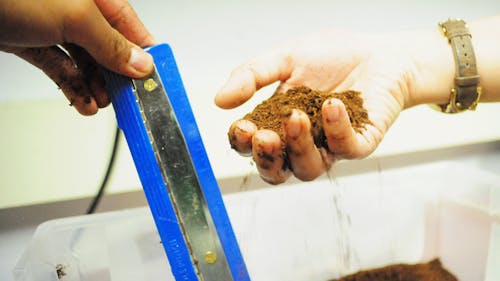U. accepts "Grand Challenges"

A new breed of skilled engineers will soon be trained to handle evolving global problems at the School of Engineering.
The national "Grand Challenges” program adopted by more than 120 engineering institutions focuses on developing skilled engineers that will be able to tackle some of the most difficult problems facing the world, according to a press release by the National Academy of Engineering.
These challenges were recently backed by President Barack Obama and include providing clean water and better access to education in impoverished communities around the globe, along with ending malnutrition, according to an open acceptance letter signed by deans from every participating school.
Helen Buettner, a professor in the Department of Biomedical Engineering and Chemical and Biochemical Engineering, said this program is a way for students to gain more hands-on experience.
By introducing this program, the School of Engineering plans to utilize its multiple partnerships to tackle these “Grand Challenges,” she said.
“I think they are going to develop skills that not every engineer has,” Buettner said. “They will have skills that will make them very valuable in their careers.”
Having these abilities will better prepare them for 21st century challenges and help them succeed in the future, she said.
These skills will be developed through service projects, Buettner said. By teaming up with local chapters of organizations such as Engineering Without Borders, students will learn about the methods used to tackle real world problems.
Engineers Without Borders works with communities around the world to meet engineering-based needs, said Shivangi Ganatra, president of the Rutgers Chapter of EWB. The group primarily works with other chapters of the organization in these global communities.
“A lot of the projects are water supply projects for communities, while others are bridge projects or energy related projects,” said Ganatra, a School of Engineering Senior. “(Being involved with this program) will help us better our projects, because we’ll get more researchers and support in many different ways.”
EWB meets many of the criteria for the "Grand Challenges" program, Buettner said.
"It provides hands on experience, has them create innovative designs and helps them gain global awareness," she said.
Students involved with the program would deal with real world problems, Ganatra said. They would gain the ability to think about projects with respect to aspects like local and cultural obstacles, in addition to technical needs.
Further service projects will come about as this program evolves, Buettner said. The "Grand Challenges" program at Rutgers will integrate experience that can relate to any of the nine engineering majors offered at Rutgers.
As the program expands, so will support of engineering related service projects, Ganatra said. When that happens, the end results will have a better overall quality as a result of assistance from more specialized students, she said.
“Something we do right now is working with the Bloustein School," she said. "They have a group called the International Development Interest Group, and they help us with the more public planning related aspects of the project."
The program is not just going to help the students involved, but also the surrounding communities they work in, Buettner said. One local partnership is concerned with maintaining and improving the quality of water resources in the lower Raritan watershed.
The School of Engineering's plan is to introduce the criteria for this program in engineering core classes starting in the fall of this year. It is open to students from every year and its goal is to train a cadre of engineers in a unique way, Buettner said.
The "universal goal" is to have at least 20 students graduate from this program each year, she said.
Implementing this curriculum would help students better develop professionally and personally, and make them better leaders, Ganatra said.
Ultimately, the program would give engineering students different ways to engage with what they are learning, Buettner said.
Editor's Note: A previous version of this article said President Barack Obama proposed the challenges. Comments by Phani Paladugu, a School of Engineering first-year student, were omitted.



